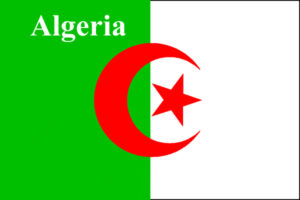 According to the Algerian constitution, education is the basis for all economic and social change, and a means of promoting the country’s national identity, integrity and values. School is free and compulsory for children beginning at age 6 and for the nine years of primary school which follow.
According to the Algerian constitution, education is the basis for all economic and social change, and a means of promoting the country’s national identity, integrity and values. School is free and compulsory for children beginning at age 6 and for the nine years of primary school which follow.
Pre-primary education, for children ages 5-6, is offered both through private preschools and schools attached to primary schools. Most students begin primary school at age 6. Primary students are divided into three cycles: grades 1-3, 4-5, and 6-9 (middle school). At the end of grade 9, students take the national basic education certificate examination. Successful students are awarded the Brevet d’Enseignement Fondamental (BEF), which enables them to follow one of three streams during their first year of high school: languages and social studies (lettres); sciences (natural and physical), and technology (math, physical sciences and technology). For the final two years of secondary school students’ coursework depends on their area of specialization.
Grading in Algeria is based on the French system as follows:
| Grade | Description | Translation | U.S. Grade Equivalence |
|---|---|---|---|
| 16-20 | Très Bien | Very Good | A+ |
| 14-15 | Bien | Good | A |
| 12-13 | Assez Bien | Good Enough | B |
| 10-11 | Passable | Passing | C |
| 0-9* | Ajourné | Fail | F |
| *Grades of 8 and 9 may be considered passing for students with an overall average of 10 or higher. | |||
Primary school curriculum includes French beginning in grade 3, and adds English as a second foreign language in middle school grade 8; many students learn Tamazight, a Berber language. Arabic, Islamic and civic education, history, geography, science and technology, mathematics, art, music and physical education are also offered.
Secondary students learn Arabic, math, history and geography, Islamic studies, English and French, art or music, and physical education. Depending on their academic path, students may take design, technology, and natural or physical science, and may add a third foreign language. Students following a sciences path also study economics and applied mathematics.
Algerians may choose from a wide range of higher education opportunities, including the University of Algiers, founded in 1909, and a number of other universities and national professional institutes. In early 2012 the government announced reforms designed to improve the quality of higher education, including raising pay for university teachers by around 50%. The country also has formed partnerships with European countries to boost scientific and technological research programs.
© 2025 Gaetranslations | Terms & Conditions
Website by: Timefortheweb